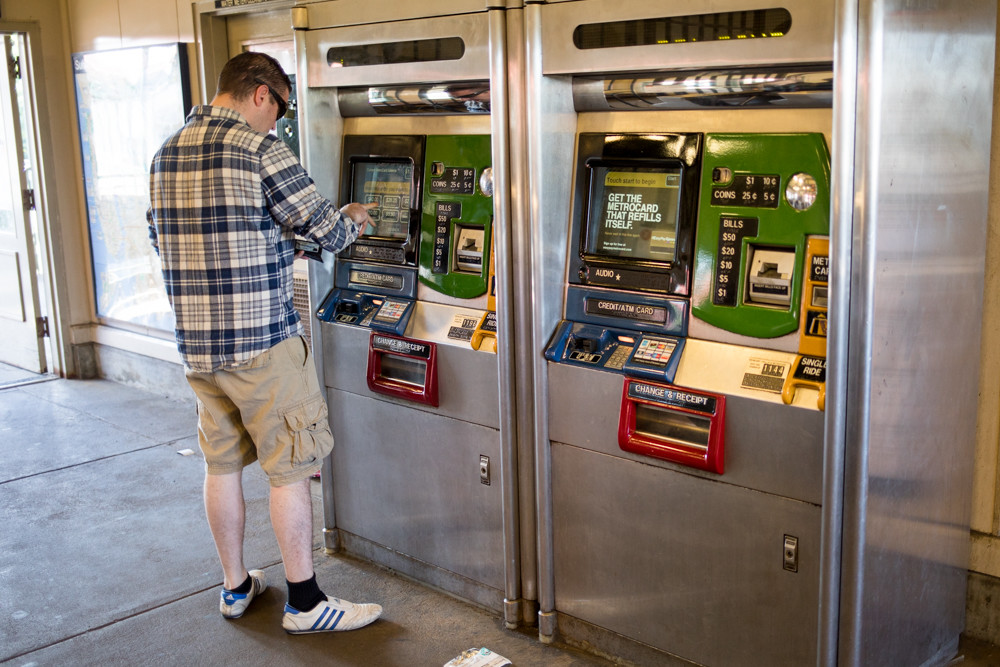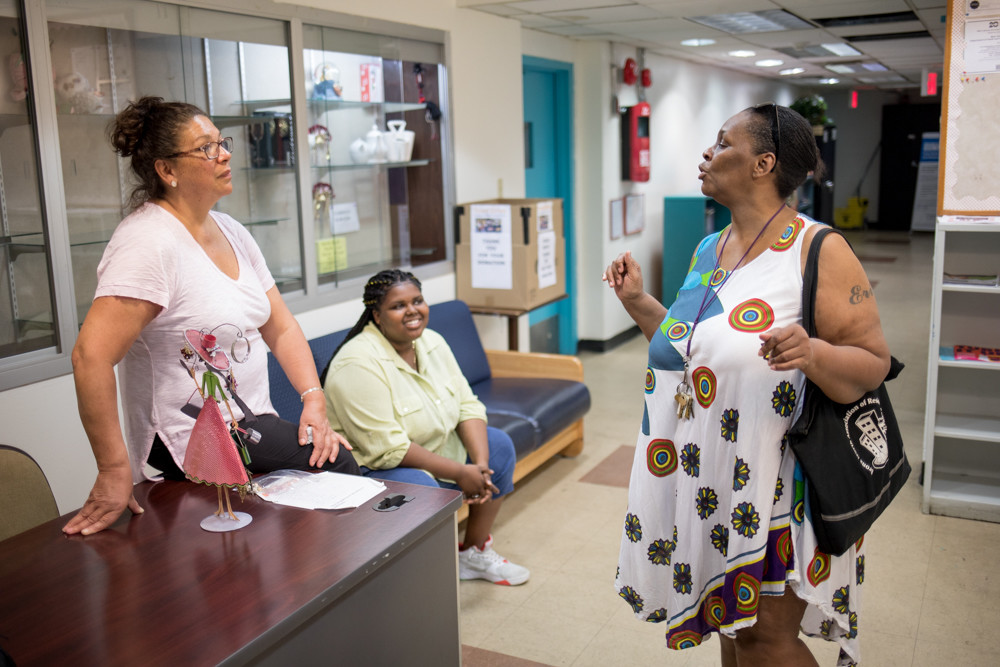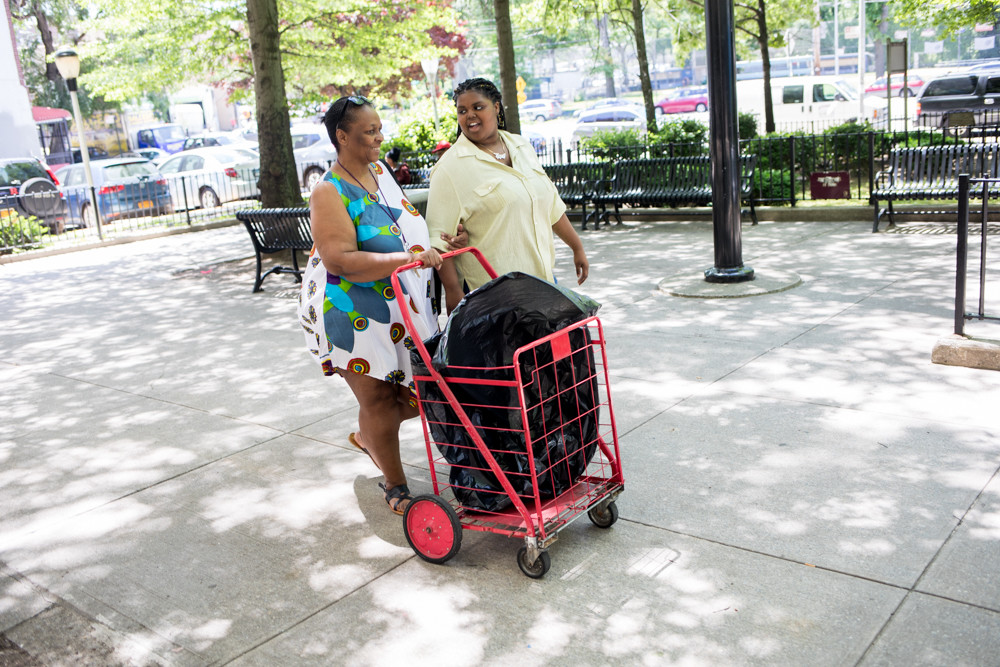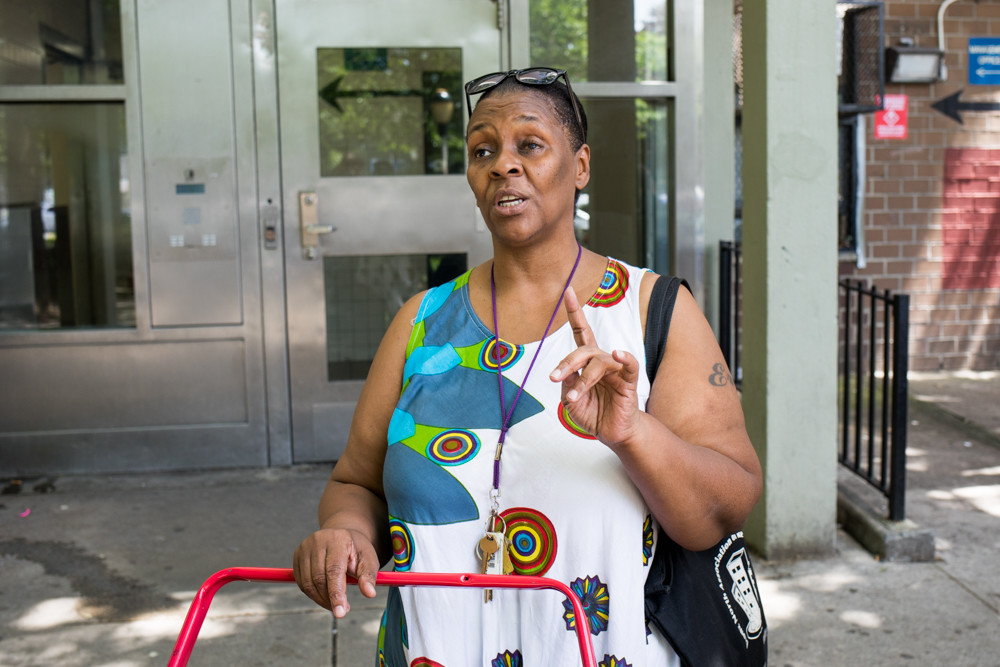Leaders shake hands, fund fair fares for working poor
Soon, some residents of Bailey Avenue’s Fort Independence Houses — and other places — may no longer have to choose between taking the bus home and feeding themselves and their families.
City leaders reached an agreement earlier this month to provide reduced-fare MetroCards to low-income subway and bus riders. Councilman Ydanis Rodriguez, who chairs the council’s transportation committee, called the “fair fares” program a “victory for all New Yorkers.”
“The choice between a Metropolitan Transportation Authority fare and a necessity just got a little easier,” Rodriguez said in a release, after Mayor Bill de Blasio and City Council Speaker Corey Johnson reached an agreement to fund the program.
Under the terms of the deal, the city will spend $106 million in fiscal 2019 to provide half-priced transit fares to residents living below the federal poverty line — a household income of about $25,000 for a family of four — according to Riders Alliance, an advocacy group for subway and bus riders, which launched the fair fares campaign in collaboration with antipoverty group Community Service Society of New York in 2016.
Some 800,000 residents would be eligible for the discounted fares, according to CSS, saving them up to $726 a year.
“When it comes to making public transportation affordable to those who need it most, struggling New Yorkers, (funding fair fares) fell perfectly in line with the city’s mandate, which is to fight poverty,” Riders Alliance campaign manager Rebecca Bailin said.
Given the city’s scale and influence, her organization predicts the program could have a ripple effect across the nation, providing a kind of blueprint for “a more equitable urban America.”
“I struggle every single time I have to buy a MetroCard, which is every month,” said Cynthia Kozikowski, a single mother of four who lives in Claremont. As if raising four kids on her own weren’t enough, recent surgery for back problems has prevented her from working.
“Other people that I know, they have the same struggles,” said Kozikowski, who is a member of Riders Alliance. “They have to take money from their grocery bill or their utility bill, or they have to forgo going anywhere” because they simply can’t afford subway or bus fare, let alone a taxi.
Benefits all around
Yet, making it easier for straphangers to pay for public transit is more than a poverty-fighting measure, Kozikowski said. It also could help lower fare evasion, like when struggling parents tell their kids to hop the turnstile.
If she gets questioned by the police, “that’s a problem for me,” Kozikowski said. “Not only do I not want to set that example for my children, but I want them to be able to swipe through.”
And the program is not a handout, Kozikowski added. “It’s a hand up. Once I get over this little hiccup that I’m going through right now, I’ll be back in the game. I’ll be back where I need to be.”
Although some of the plan’s details are still being worked out, fair fares on the horizon is welcome news to dozens of families living in Fort Independence Houses, said resident association president Barbara Lauray.
“Some of the kids that just graduated from high school are attending college, so they need MetroCards” to travel to campus for class, Lauray said. “Families are on a limited income, so it’s very difficult for them. They want help, and they’re proud people. Some are under public assistance, and they don’t have that money to pay for a MetroCard.”
And MetroCard’s can be costly — just one for monthly unlimited rides costs $121.
Getting to work
Other Fort Independence youngsters work in the city’s Summer Youth Employment Program, Lauray said, which offers summer jobs — in everything from arts and recreation, to information technology, to media and entertainment — to teenagers and early 20-somethings for up to six weeks in July and August. That can send them scrambling to far-flung corners of the borough.
“Some of these kids are located all over the Bronx,” Lauray said. “They have to pay for transportation because working for Summer Youth, they don’t provide you with a MetroCard. They place them in schools, day care centers, community centers. They put them in custodial programs. They have them basically working all over the place — hospitals as well.
“These kids, if they come from Fort Independence, and they say to them, ‘You have to come to Gun Hill,’ they need a MetroCard to get there.”
And while they may be able to buy one when payday hits, it’s still a hefty cost. Youth who work in the program earn the state’s minimum wage of $13 an hour for up to 25 hours a week, according to the city’s youth and community development department. Shelling out $121 “really takes a chunk out of what they make,” Lauray said.
But Fort Independence’s industrious teenagers and future college grads aren’t the only ones struggling to afford MetroCards.
“Some of these people have doctors’ appointments throughout the summer,” Lauray said, or any time of year, both for themselves and their children. “They have to pay for MetroCards to bring their kids to the appointments, as well as for themselves. It’s not like getting on a school bus.”
Making a choice
“Sometimes it’s like, either you purchase this MetroCard to get to work, or you go without lunch,” Lauray added. “And sometimes you may just have enough to get to work and not enough to get home. Sometimes people are down to their last $2.75.”
While city leaders may celebrate the deal, at least some Fort Independence residents remain a bit skeptical, Lauray said.
“They’ll believe it when they see it,” Lauray said. “The city has said and done a lot of things that people think would be a great opportunity for them, but sometimes it just doesn’t work out. They’ve done all this talking about allocating funds for fair fare cards, but seeing is believing.”
Still, Lauray hopes fair fares become a reality very soon.
“I would want to believe that this is going to be a done deal,” she said. “It’s so needed. There’s one student in my development who’s attending Bronx Community College in the fall, and it’s a hardship, a struggle, for his mom to provide a MetroCard weekly.
“Some students walk, but what do you do when it’s pouring rain? Some students will ask the bus driver, can he give them a ride? Some bus drivers will, and some bus drivers won’t.”













